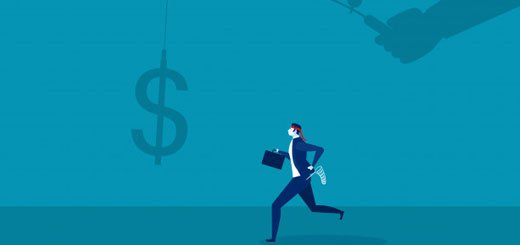Financial freedom is not a mere state of mind; it is the perk of being prudent with your earnings. It is not about being a millionaire or a business tycoon; rather it is about having a dependable residual income that covers your expenses and lets you live the life you want to live.
Today, we are seeing strong economies tumble; businesses go bust and job loss as trending news. Wouldn’t we love to have a peaceful night’s rest knowing no matter how bad the situation our savings will see us through?
Unfortunately, we work hard to earn our income, but not as hard when it comes to managing it. Indian households contribute to about 60% of the country’s savings. The average Indian household holds its savings at a mere 5% in financial assets. Rest of the assets are in real estate (77%), durable goods (7%), and in gold (11%) . While one of the prime reasons for savings is to secure finances post-retirement, the percentage saved is proportionally negligible in comparison. Heavy investments made in assets like real-estate and durable goods tend to remain fixed and not liquid. These habits are skewed and in contrast to the saving habits of developed economies where households invest a substantial amount of their earnings in financial assets.
When you reach a stage where you do not panic about a hefty unexpected expense by wondering about how you are going to pay for it, that empowering peace of mind knowing that you’ll have it covered is what financial freedom is.
Do you enjoy such freedom? What does it look like to you?
- Opportunity to pursue a profession without salary being a constraint.
- Choice to go on holiday without having to worry about budgets.
- Freedom to donate freely to those in need without hurting your pocket.
- Ability to retire early in life.
To get to this point takes a lot of hard work which begins from :
- Listing your goals, long term/short term and the financial backing needed to achieve it.
- A structured plan and right investment instruments to get you there.
- And, commitment and a regular check on behavioural biases to ensure you do not deflect along the way.
Learning how to manage money is not a difficult task. Plan ahead and avoid living paycheck to paycheck. Budget your expenses and start by paying off your debts before you plan to start saving.
Even though not everyone will admit it, but our financial status has a lot to do with how we behave. An article ‘The pleasure of walking tall’ published in 1969 explains it perfectly :
“Your savings, believe it or not, affect the way you stand, the way you walk, the tone of your voice. In short, your physical well-being and self-confidence. A man without savings is always running. He must. He must take the first job offered, or nearly so. He sits nervously on life’s chairs because any small emergency throws him into the hands of others.”
Building a corpus that makes you financially independent can be simple, it’s the first few steps of getting down to doing it and diligently so is where most have trouble. As busy professionals we tend to postpone these difficult money matters to a later date and finally make rash investments with a sole focus on saving taxes at the end of the financial year. Avoid these habitual mistakes, if financial planning is a daunting task get in touch with a professional and seek their assistance. Making the right investment choices is the first step in the right direction to financial freedom.
“Take waste out of your spending; you’ll drive haste out of your life.”
And above all,
“If you don’t need money for college, a home or retirement, then save for self-confidence. The state of your savings does have a lot to do with how tall you walk.”






